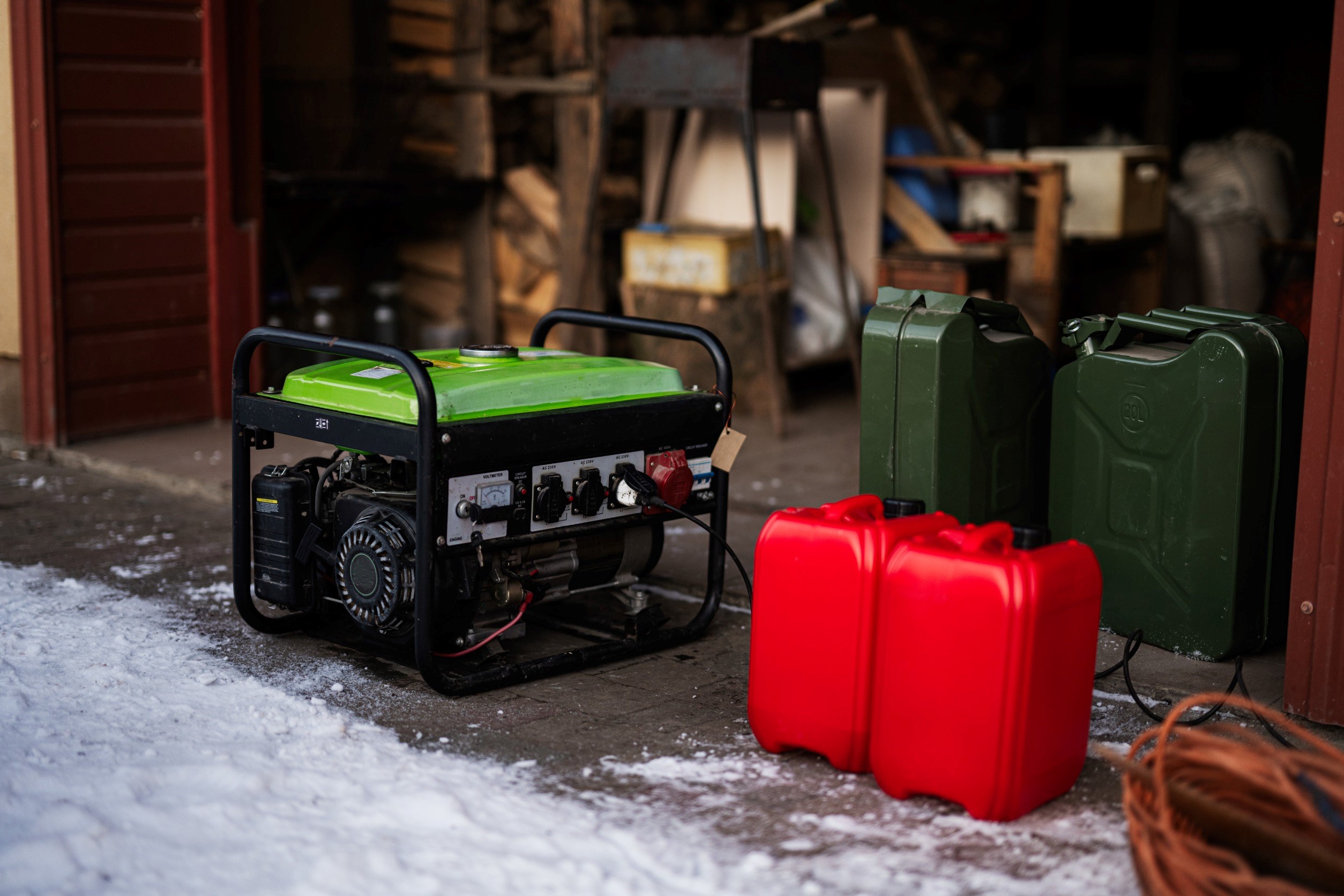
Which Home Generator is Most Energy-Efficient?
To ensure your home remains powered during the stormy seasons in coastal North Carolina, choosing an energy-efficient whole-home generator is key. Hurricanes and heavy storms underscore the need for reliable backup power that won’t break the bank or harm the environment.
While some generators guzzle fuel, driving up costs and emitting pollutants, the right choice can save you money and reduce emissions. Plus, some fuel types can be hard to find when emergency strikes.
Let’s delve into your home generator options and weigh their pros and cons to find the perfect fit for your unique needs.
1. Gasoline generators.
Though not known for energy efficiency, gasoline generators are the most common kind for both home and commercial use. They are ideal for low power appliances and cheaper to buy and install than other generator options.
However, gasoline generators release major carbon emissions and air pollution. And unlike other fuel types (like solar power and natural gas), gas can be difficult to find in the face of natural disasters. Because pumping gas typically requires electricity, you may be sore out of luck if the power goes out.
2. Natural gas generators.
Natural gas generators are a cleaner, more cost-effective alternative to typical gas generators.
No need for refueling or stocking up! Once installed, fuel is transported to the generator from natural gas pipelines, making it the most convenient stand by generator. Then, when a big storm comes in and knocks out your power, your fuel supply will remain perfectly in-tact.
However, the convenience factor comes with some strings…namely, a high price tag and substantial repair costs. Furthermore, natural gas is significantly less energy-efficient per gallon than gasoline and propane.
3. Propane generators.
Propane generators are simple and easy to operate. They typically don’t have any problems starting up in emergency situations. A clean-burning fuel, propane produces less greenhouse gas than other fuel types, such as gasoline.
Furthermore, because liquid propane does not deteriorate, it has an incredibly long shelf-life. You can store propane for years, making it easier to stay prepared for the next power outage. But if you need to restock, propane is also easy to find.
All that being said, propane isn’t very energy efficient. You’ll burn through a tank of propane quickly, and propane doesn’t come cheap.
4. Duel-fuel generators.
An increasingly popular home generator option, duel-fuel generators are the ideal choice if you need reliable, uninterrupted power.
While typical generators rely on a single fuel source, duel-fuel alternatives can run on two different kinds of fuel – most commonly gasoline and propane. Gas-propane generators boast impressive fuel efficiency, able to operate on low fuel because of their highly efficient engines.
5. Solar generators.
Solar generators use clean, renewable energy, transforming sunlight into power for your home. BUT…that doesn’t mean they necessarily use energy efficiently.
In fact, solar generators tend to be pretty inefficient, only converting about 15 to 20% of the sun’s rays into electricity. This, in turn, also makes them a bit unreliable for coastal Carolina hurricanes and other emergencies.
Although, if you think about energy efficiency in terms of the amount of actual “fuel” being used, solar obviously takes the cake since it runs without any sort of fossil fuel.
The Verdict: The Most Energy-Efficient Home Generator Is…
Duel-fuel generators are generally the most energy efficient whole-home option available to most homeowners. However, this depends on a number of factors, such as…
- Amount of power you need to power your home
- Length of time you’ll rely on generator
- Generator size
However, the cost of initial installation and repairs down the road may make you think twice. Plus, if you’re just using the generator as a back-up in case you lose electricity in your home, you may not need something quite so powerful.
As shown above, each type of home generator has pros and cons. If in doubt, it’s always a good idea to call a generator expert for advice.
Odyssey Mechanical, LLC | Wilmington, NC Electrical, Gas, & Plumbing
One of the only service companies in the Greater Wilmington Area with expertise in gas, plumbing, AND electrical systems, Odyssey Mechanical, LLC is fully equipped to install and service most residential and commercial generators.
North Carolina hurricane season will be here sooner than you know it! Don’t wait to equip your home with a quality (and energy efficient) generator. Contact us today to schedule a generator installation before summer hits!
READ MORE:

